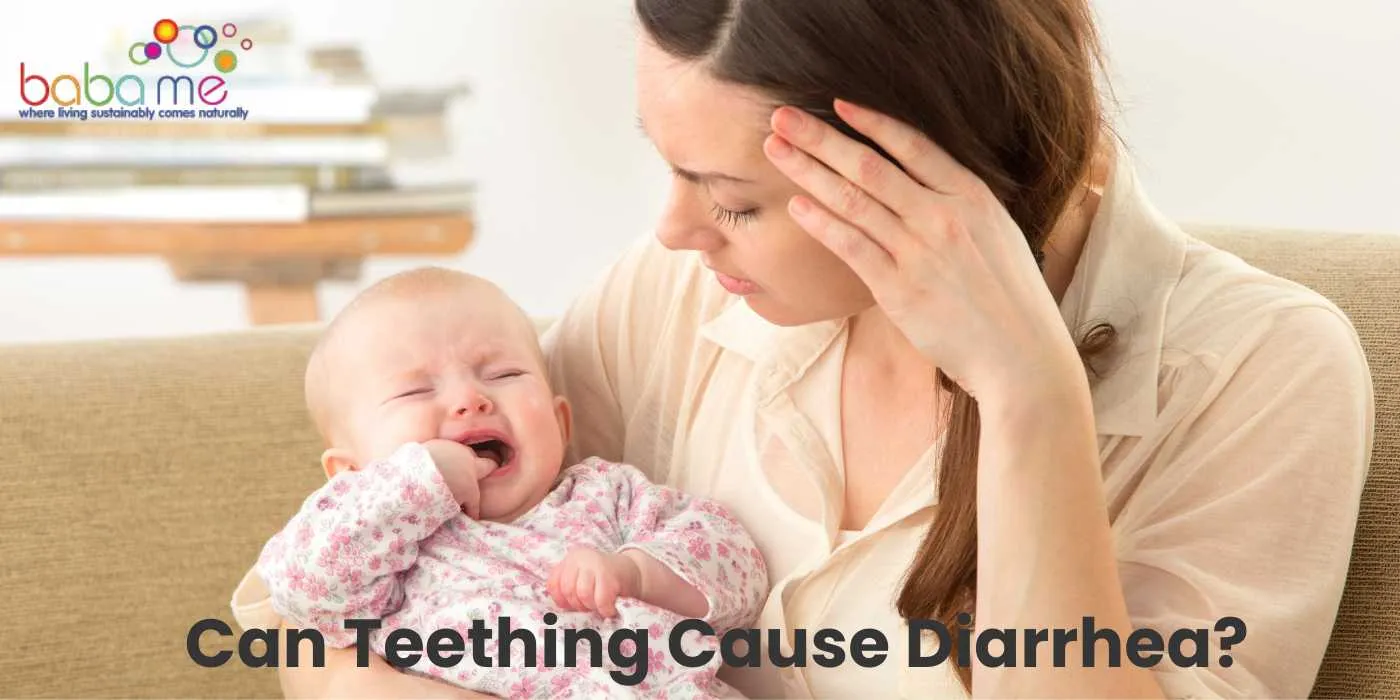The journey of a baby’s first tooth is often marked with moments of excitement, photos, and sometimes, a bit of discomfort. Along this journey, many parents and caregivers observe symptoms and behaviors that they associate with the teething process, including fussiness, drooling, and even a mild increase in body temperature.
However, when it comes to more severe symptoms such as diarrhea, the links to teething become less clear. In this article, we delve into the relationship between teething symptoms and diarrhea, examining whether there is a direct connection, or if these symptoms are likely due to unrelated factors.
We Ask Teething Can Cause Diarrhea: True or False
The American Academy of Pediatrics, stated that teething does not cause severe symptoms like diarrhea, vomiting, or fever. If a baby experiences such symptoms, it’s likely due to an unrelated illness or condition, and you should seek advice from a healthcare provider.
Many parents and caregivers report a loose stool during teething. This could potentially be related to the increased amount of saliva a baby produces and swallows while teething, or it could simply be a coincidence, as babies are often teething around the same time they are introduced to new foods and their bodies are adapting to digesting these.
While teething may not directly cause diarrhea, there are some things that parents can do to help alleviate any discomfort or symptoms that their baby may be experiencing. These include:
Keeping their baby’s mouth clean and dry to prevent infections
Offering their baby plenty of fluids to prevent dehydration
Using teething toys or chilled washcloths to help soothe sore gums
Keeping their baby’s hands and objects clean to prevent the spread of germs
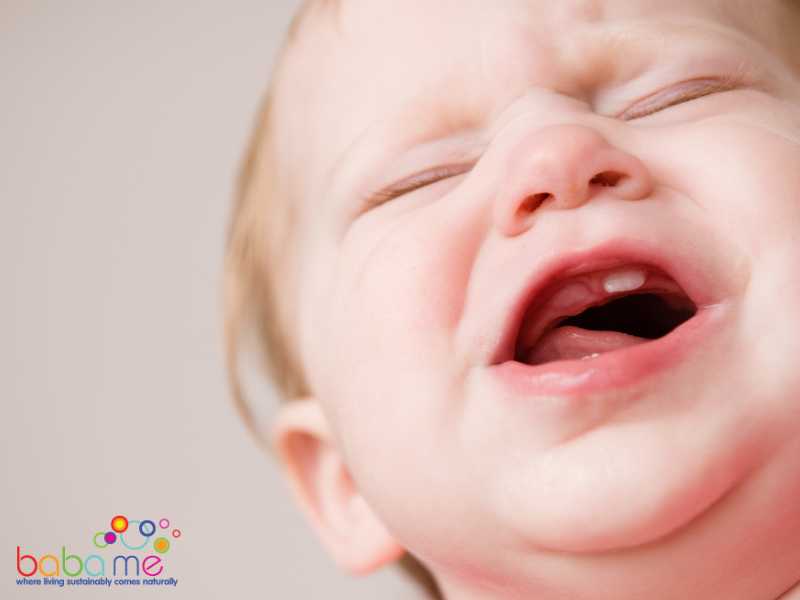
What is Teething Diarrhea
“Teething diarrhea” is a term often used by parents and caregivers to describe a situation where a baby experiences loose or more frequent stools around the same time they are getting new teeth. It’s based on the observation that some babies seem to have changes in their bowel movements during teething.
The exact cause of this perceived phenomenon is not well understood, if it exists at all. One theory is that the increased production and swallowing of saliva that happens during teething could potentially affect the baby’s digestion, leading to loose stools.
Another theory points to the introduction of new foods around the same time babies start teething, which can also cause changes in bowel movements.
Understanding Teething
The Teething Process Explained
Teething is the process where a baby’s first teeth, often called “baby teeth,” begin to emerge through the gums. This period can be an uncomfortable time for teething babies, due to the gum pain and teething discomfort they may experience.
It’s not uncommon for a teething child to seek relief by chewing on objects. A clean finger, chilled teething toy, or a wet washcloth can be offered to help a baby chew and self soothe, as the pressure can make their sore gums feel better.
Be mindful that constant moisture from a wet washcloth or excess saliva can lead to a facial rash.
Typical Teething Timeline
Most babies start teething around six months of age, although some may begin as early as three months. During this teething period, babies may show more interest in biting or chewing, whether they’re a breastfed baby or have started on babies’ solid foods.
It’s also a common time for babies to bite more during nursing. The timeline for teething can vary, and while some babies breeze through the process, others may experience more serious illness-like symptoms that are often mistaken for teething and diarrhea.
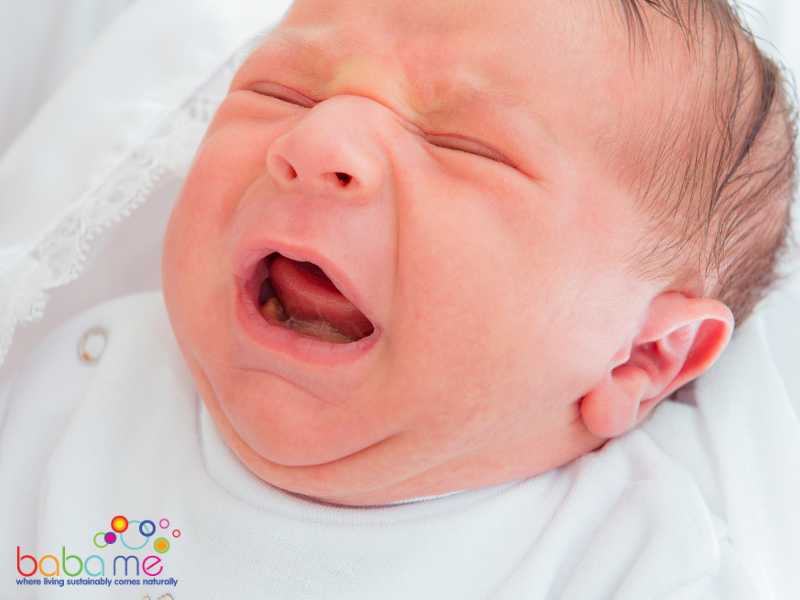
Recognizing Common Teething Symptoms
Identifying the symptoms of teething can be challenging as they mimic other conditions. Common symptoms include irritability, a slight rise in temperature (though not a full-blown fever), and signs like cheek rubbing or ear pulling, which can be mistaken for an ear infection.
Many babies have more runny noses during the teething symptom phase, and their gums might appear red and swollen. It’s important to remember that more severe pain, losing weight, or fewer wet diapers than usual are not typical teething symptoms and may indicate a more serious issue like bacterial infections, food allergies, lactose intolerance, or severe dehydration. In these cases, you should contact a doctor immediately.
Some parents find that teething biscuits to help babies bite, a cold spoon, or other familiar light chewables can help relieve teething pain. However, the best way to keep a teething baby hydrated, especially if there’s a concern about fewer wet diapers, is by breastfeeding or bottle-feeding more often and treating diarrhea if present.
Always consult a healthcare professional for advice on how to treat diarrhea in a baby. Don’t let symptoms persist for more than a day before seeking medical advice, as the cause might be different and require specific treatment.
Other Possible Causes of Diarrhea During Teething
While teething itself does not cause diarrhea, there are other factors that can contribute to it. It’s important to identify the underlying cause of your baby’s diarrhea to ensure proper treatment and care.
One possible cause of diarrhea during teething is a change in diet. As your baby starts to eat solid foods, their digestive system may need time to adjust. Introducing new foods or changing the frequency of feedings can also lead to loose stools.
Another possible cause of diarrhea during teething is a viral or bacterial infection. Babies are more susceptible to infections during teething due to increased drooling and putting objects in their mouth. Symptoms of an infection may include fever, vomiting, and dehydration. If you suspect your baby has an infection, it’s important to seek medical attention.
Certain medications, such as antibiotics or teething gels which alleviate teething pain, can cause diarrhea as a side effect. Always consult with your pediatrician before giving your baby any medication.
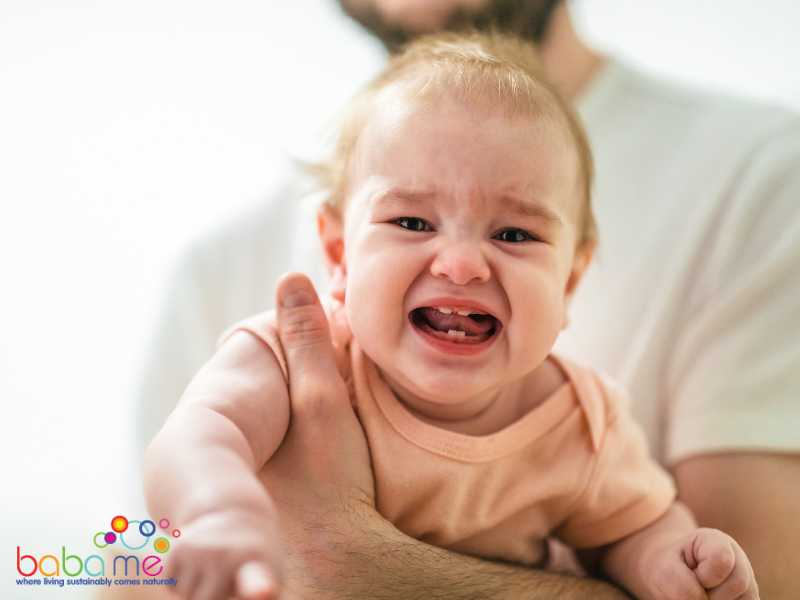
Prevention and Treatment
Prevention Tips
Preventing teething diarrhea is possible with some simple tips and teething remedies:
Wash your hands frequently and ensure that the baby’s toys are clean.
Do not allow your baby to put dirty objects in their mouth.
Offer your baby plenty of fluids to prevent dehydration.
Introduce new foods gradually to your baby’s diet and avoid foods that are known to cause diarrhea.
Keep your baby’s bottom clean and dry to prevent diaper rash.
Use teething rings or toys to help soothe your baby’s gums (yes wooden teethers are very safe)
Best Overall
HABA Magica
- Ultimate Quality
- Multiple layers of water-based, solvent-free lacquers make it extremely resistant to wear and tear
- Easy to grasp for young children’s hands
Best Silicone / Wood
Arudyo Teether
Silicone and natural beech materials
The hollow design and lightweight size make it easy for babies to grasp and use for teething and grasping training.
Best value
Teether Toys 4pk
- Made from natural untreated unsealed beech wood
- Supports baby’s early motor skill development
Treatment Options
If your baby gets teething diarrhea, the following treatment options may help:
Treatment
Oral Rehydration Solution (ORS)
ORS helps to replace lost fluids and electrolytes due to diarrhea. It is available over the counter and can be given to babies as young as 2 months old.
Probiotics
Probiotics are beneficial bacteria that can help restore the balance of gut flora. They are available in supplement form or in certain foods like yogurt.
Medications
Medications like loperamide should only be given to babies under the guidance of a pediatrician.
Dietary Changes
Changing your baby’s diet can help alleviate diarrhea. For example, giving your baby more starchy foods like rice, bananas, and potatoes can help firm up stools.
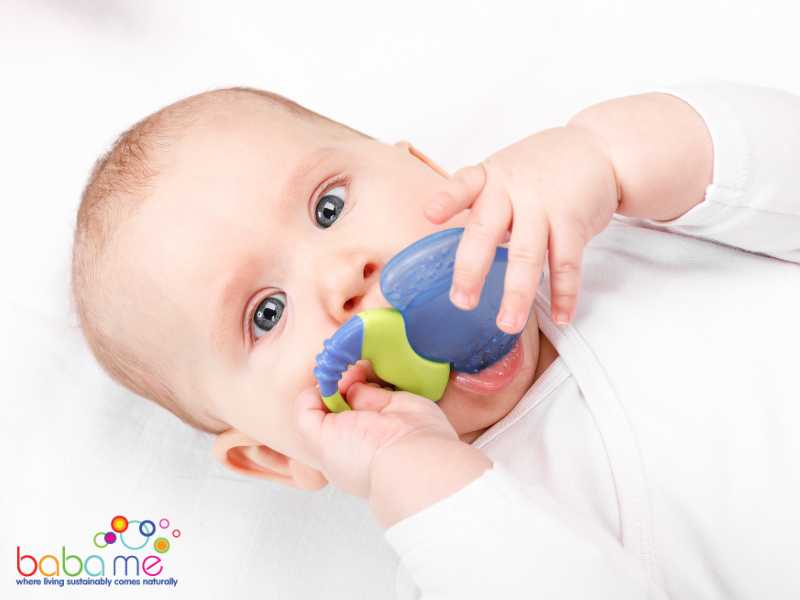
FAQS on Teething Causing Diarrhea
How long does teething diarrhea last?
Teething diarrhea usually lasts for a few days, but it can vary from baby to baby. If the diarrhea persists for more than a week or if it is accompanied by other concerning symptoms, consult your pediatrician.
How do you stop teething diarrhea?
To help manage teething diarrhea, ensure your baby stays hydrated by offering small amounts of water, breast milk, or formula more frequently. Avoid giving fruit juices, as they can worsen diarrhea. Consult your pediatrician before using any medication or over-the-counter remedies for diarrhea.
Can teething cause stomach pain and diarrhea?
While teething is not a direct cause of stomach pain and diarrhea, some babies may experience these symptoms due to excessive drooling and swallowing more saliva than usual. This can lead to an upset stomach and looser stools as well as a runny nose, a low grade fever and very sensitive gums.
Can teething cause digestive issues?
Teething itself does not typically cause digestive issues. However, as mentioned earlier, excessive drooling and swallowing saliva can lead to an upset stomach and looser stools in some babies. If your baby experiences persistent or severe digestive issues, consult your pediatrician.
Why do babies get diarrhea when teething?
The exact reason why some babies may experience diarrhea when teething is not entirely clear. One theory is that the increased saliva production and swallowing during teething can lead to an upset stomach and looser stools.
Another possibility is that the baby’s immune system is slightly weakened during teething, making them more susceptible to minor infections that can cause diarrhea. If your baby’s diarrhea lasts for more than a week or is accompanied by other concerning symptoms, consult your pediatrician.

